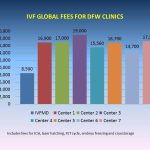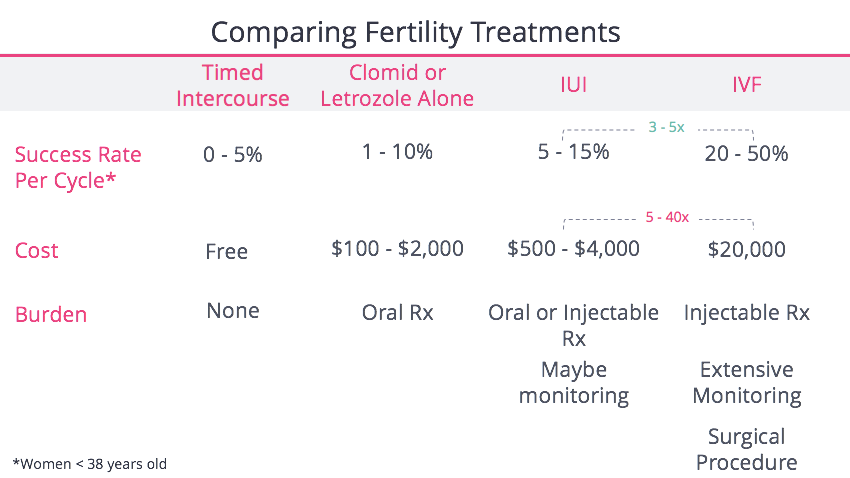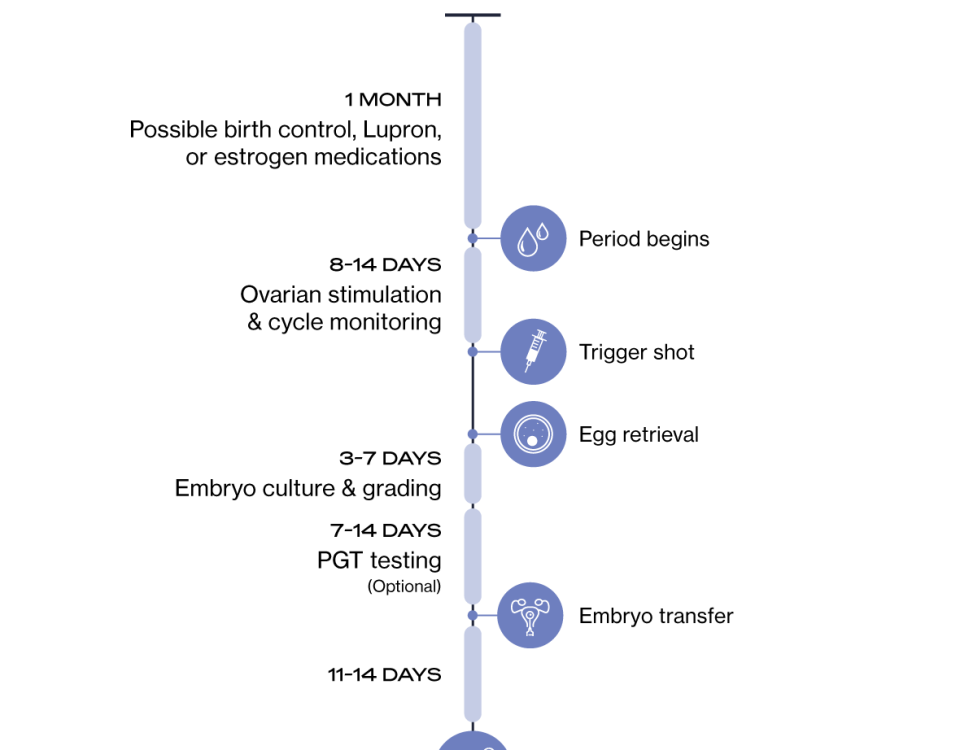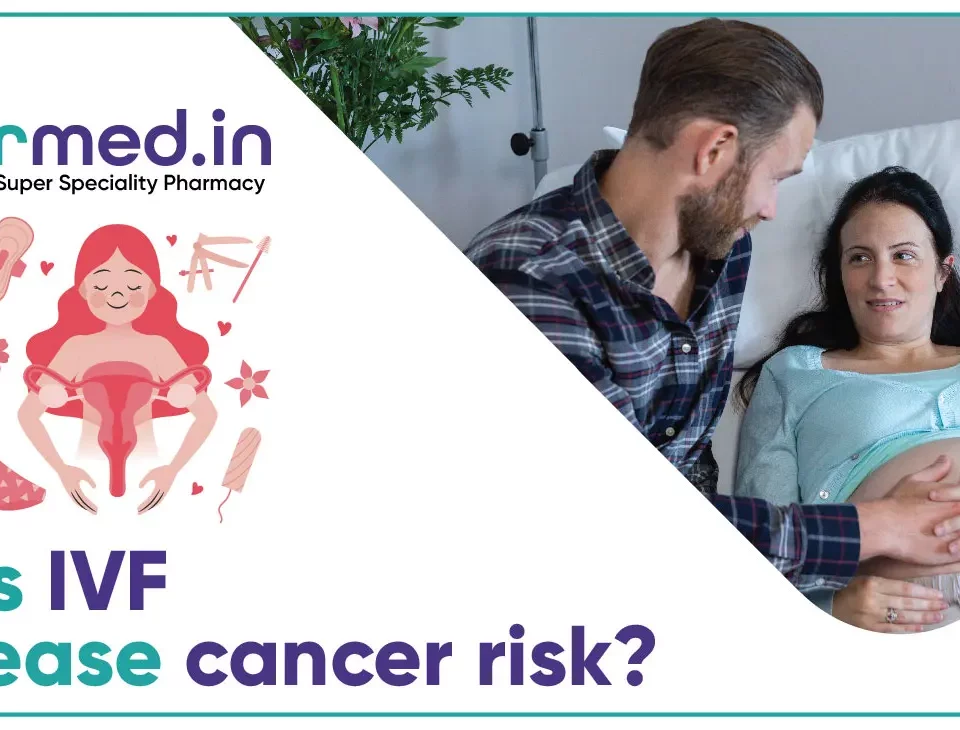
How Much Does IVF Cost with Insurance?
April 23, 2025
How Many Embryos Are Used in IVF? Your Complete Guide to Understanding the Numbers
April 23, 2025How Much Is IVF in Florida? Your Complete Guide to Costs, Options, and Insights
In vitro fertilization (IVF) is a life-changing option for many people dreaming of starting a family. If you’re in Florida—or considering traveling here for treatment—you’re probably wondering about the cost. It’s a big question, and the answer isn’t as simple as a single number. Prices vary based on where you go, what you need, and even what’s happening in the world of fertility care right now. This guide dives deep into everything you need to know about IVF costs in Florida, from the basics to hidden expenses, new trends, and practical ways to make it work for you. Let’s break it down together.
What Does IVF Cost in Florida? The Big Picture
IVF costs in Florida typically range between $12,000 and $25,000 per cycle. That’s a wide range, right? The reason is that every clinic, every patient, and every treatment plan is a little different. A cycle means one full round of IVF, including medications, egg retrieval, fertilization, and embryo transfer. But that’s just the starting point—extras like genetic testing or donor eggs can push the price higher.
For example, in cities like Miami or Orlando, where top-tier clinics are common, you might pay closer to $15,000-$20,000 for a standard cycle. Smaller towns or less specialized centers might offer prices closer to $12,000. Nationally, these numbers line up with the average IVF cost in the U.S., which hovers around $15,000-$20,000 per cycle, according to the American Society for Reproductive Medicine (ASRM). Florida’s costs are pretty competitive, especially since the state has a mix of urban hubs and more affordable regions.
But here’s the catch: most people don’t succeed with just one cycle. Studies show that about 50% of women under 35 achieve a live birth after their first round, but success rates drop with age. That means you might need two or three cycles, which could bring your total to $30,000-$60,000 or more. It’s a lot to think about, so let’s unpack what’s included—and what’s not.
What’s Included in the Price?
A typical IVF cycle in Florida covers these core steps:
- Ovarian Stimulation: Medications to help your ovaries produce multiple eggs. This can cost $3,000-$5,000 alone.
- Monitoring: Ultrasounds and blood tests to track your progress, usually $1,000-$2,000.
- Egg Retrieval: A minor surgery to collect the eggs, around $3,000-$5,000.
- Fertilization and Embryo Culture: Lab work to create and grow embryos, about $2,000-$4,000.
- Embryo Transfer: Placing the embryo in your uterus, typically $1,500-$3,000.
That’s the baseline. But clinics often quote a “package price” that bundles these together, ranging from $10,000-$15,000 before meds. Medications are the wild card—they’re not always included, and prices fluctuate based on your needs and the pharmacy.
What’s Not Included?
Watch out for these extras that can sneak up on you:
- Pre-Treatment Testing: Bloodwork, semen analysis, or uterine exams might add $500-$2,000 before you even start.
- Genetic Testing: Preimplantation genetic testing (PGT) to screen embryos can cost $3,000-$6,000.
- Freezing Embryos: Storing extras for later use is about $500-$1,000 upfront, plus $300-$600 per year.
- Donor Eggs or Sperm: If you need them, expect $10,000-$20,000 more per cycle.
These add-ons can double your bill if you’re not prepared. That’s why asking for a detailed breakdown from your clinic is a must.
Why Do IVF Costs Vary So Much in Florida?
Florida’s a big state with a lot going on—sunny beaches, bustling cities, and a growing fertility industry. But why does the price of IVF jump around so much? It comes down to a few key factors.
Location Matters
In Miami, where living costs are high and demand for fertility services is strong, clinics often charge a premium. A cycle there might hit $20,000 or more. Head to a smaller city like Gainesville or Tallahassee, and you could pay $12,000-$15,000 for the same treatment. Why? Overhead costs like rent and staff salaries are lower outside the big metro areas, and competition might drive prices down.
Clinic Reputation and Technology
Top clinics with high success rates—like those tied to university hospitals or boasting cutting-edge labs—tend to charge more. For instance, the University of Florida Health’s fertility program might lean toward the higher end because of its expertise and resources. Smaller, private clinics might offer lower rates but could lack the latest equipment or specialized staff.
Your Unique Needs
Your body plays a big role in the cost. If you’re over 35, you might need higher doses of meds or extra cycles, pushing expenses up. Conditions like endometriosis or low sperm count could require additional procedures, like intracytoplasmic sperm injection (ICSI), which adds $1,500-$3,000 per cycle. It’s personal, and that’s why no two bills look the same.
Economic Trends and Inflation
Here’s something new to consider: inflation and supply chain issues have nudged IVF costs up in recent years. Medications, in particular, have seen price hikes. A 2024 report from the National Bureau of Economic Research noted that fertility drug costs rose by about 10% since 2020 due to manufacturing delays and demand. In Florida, where tourism and healthcare intersect, these shifts hit hard.
Breaking Down the Numbers: A Florida IVF Cost Table
To make this clearer, here’s a snapshot of what you might pay in Florida, based on real-world ranges:
| Service | Low-End Cost | High-End Cost | Notes |
|---|---|---|---|
| Basic IVF Cycle (no meds) | $10,000 | $15,000 | Excludes medications |
| Medications | $3,000 | $5,000 | Varies by dosage and response |
| Pre-Treatment Testing | $500 | $2,000 | Depends on required tests |
| Genetic Testing (PGT) | $3,000 | $6,000 | Optional, per batch of embryos |
| Embryo Freezing | $500 | $1,000 | Plus annual storage fees |
| ICSI | $1,500 | $3,000 | For male factor infertility |
| Donor Eggs | $10,000 | $20,000 | Includes donor compensation |
Total for One Cycle (with meds): $13,000-$25,000
Total for Three Cycles: $39,000-$75,000
This table gives you a ballpark, but your clinic’s quote will be tailored to you. Always ask for an itemized list!
How Does Florida Compare to Other States?
Florida’s IVF costs are middle-of-the-road compared to the rest of the U.S. In California or New York, where living expenses are sky-high, a cycle might cost $20,000-$30,000. In states like Texas or Georgia, you might find prices closer to $10,000-$15,000. Florida sits nicely in between, offering a balance of quality care and reasonable rates.
One perk? Florida doesn’t mandate insurance coverage for IVF, unlike states like Massachusetts or Illinois. That means fewer plans cover it here, but it also keeps clinics competitive. Some even offer discounts or financing to attract patients, which you won’t always see in states with mandated coverage.
Interactive Quiz: What Might Your IVF Cost in Florida?
Curious about your potential bill? Take this quick quiz to get a rough idea. Answer yes or no, then tally your points!
- Are you under 35? (Yes = 0 points, No = 2 points)
- Do you need genetic testing for embryos? (Yes = 3 points, No = 0 points)
- Will you use donor eggs or sperm? (Yes = 5 points, No = 0 points)
- Are you planning treatment in a big city like Miami? (Yes = 2 points, No = 0 points)
- Do you expect to need more than one cycle? (Yes = 4 points, No = 0 points)
Score Guide:
- 0-5 points: Likely $13,000-$18,000 for one cycle.
- 6-10 points: Around $18,000-$25,000.
- 11+ points: Could exceed $25,000, especially with multiple cycles.
This isn’t exact, but it’s a fun way to start thinking about your budget!
Hidden Costs You Haven’t Thought About
Most people focus on the clinic bill, but IVF comes with sneaky side expenses that add up fast. Here’s what often gets overlooked:
Travel and Time Off Work
If you’re not near a clinic, you’ll need to travel for appointments—sometimes multiple times a week during monitoring. Gas, parking, or even flights if you’re coming from out of state can cost $200-$1,000 per cycle. Plus, egg retrieval and transfer require a day or two off work. If you don’t have paid leave, that’s lost income.
Emotional Support
IVF is a rollercoaster. Therapy or support groups can help, but they’re not free. A session with a counselor might run $100-$200, and many folks need a few to cope with the stress.
Lifestyle Changes
Doctors often recommend cutting caffeine, eating organic, or taking supplements like CoQ10. These tweaks can add $50-$200 a month. Acupuncture, which some studies suggest boosts success rates by up to 15%, might cost $75-$150 per session.
Failed Cycles and Miscarriages
If a cycle doesn’t work, you’re back to square one—financially and emotionally. Miscarriages, which happen in about 20% of IVF pregnancies, might mean extra medical visits or procedures like a D&C, costing $500-$2,000.
These extras don’t show up in the brochure, but they’re real. Budgeting a cushion of $2,000-$5,000 per cycle can save you from surprises.
New Trends Shaping IVF Costs in Florida
The fertility world is always evolving, and Florida’s no exception. Here are three trends that could affect your wallet in 2025 and beyond—stuff you won’t find in older articles.
Mini-IVF Gaining Traction
Mini-IVF uses lower doses of meds to produce fewer eggs, cutting costs to $5,000-$8,000 per cycle. It’s less invasive and appeals to younger patients or those with good ovarian reserve. Clinics in Tampa and Jacksonville are starting to offer it, but success rates can be lower—around 20%-30% per cycle versus 40%-50% for standard IVF. It’s a trade-off: cheaper upfront, but you might need more tries.
Insurance Push from New Laws
In February 2025, President Trump signed an executive order to expand IVF access nationwide, pushing for lower costs and better insurance coverage. Florida hasn’t mandated coverage yet, but this could spark change. Some clinics are already partnering with employers to offer IVF benefits, like a $10,000 stipend. Keep an eye on this—it might mean more affordable options soon.
At-Home Monitoring Tech
New devices let you track hormones or follicles at home, reducing clinic visits. A 2024 study from Stanford found these tools cut monitoring costs by 25%, or about $500 per cycle. Florida clinics are testing this tech, especially in rural areas where travel’s a hassle. It’s not widespread yet, but it could save you time and money down the road.
How to Save Money on IVF in Florida
IVF’s expensive, but you’ve got options to lighten the load. Here’s how to stretch your dollars without cutting corners.
Shop Around
Call at least three clinics for quotes. Ask about discounts for cash payments or multi-cycle packages—some offer 10%-20% off if you commit to two or three rounds upfront. For example, a Miami clinic might drop a $15,000 cycle to $12,000 with a package deal.
Look for Financing
Many Florida clinics partner with lenders like Prosper or CapexMD, offering loans with 6%-12% interest. Payments might be $300-$500 a month, spreading the cost over years. Some even have in-house plans with 0% interest for the first 12 months.
Check Grants and Nonprofits
Organizations like Baby Quest Foundation or the Tinina Q. Cade Foundation give grants up to $15,000 for IVF. They’re competitive, but worth a shot. Florida residents often qualify, especially if you show financial need.
Tax Breaks
The IRS lets you deduct medical expenses over 7.5% of your adjusted gross income. If you make $60,000 a year, that’s anything above $4,500. A $20,000 IVF bill could mean a $2,000-$3,000 tax refund—talk to an accountant to maximize this.
Step-by-Step Savings Plan
- Set a Budget: Figure out what you can spend total, including extras.
- Compare Clinics: Get quotes and check success rates on the CDC’s ART database.
- Apply Early: Submit grant applications 6-12 months before treatment.
- Negotiate: Ask clinics if they’ll match a competitor’s price or throw in freebies like a free consult.
Real Stories: IVF Costs in Florida
Numbers are one thing, but hearing from real people brings it home. Here are two quick stories from Floridians who’ve been through it.
Sarah from Orlando
Sarah, 32, spent $18,000 on her first cycle at a private clinic in 2024. She needed ICSI because of her husband’s low sperm count, which added $2,000. Insurance didn’t cover anything, but they got a 10% discount for paying upfront. After one failed cycle, they’re saving for round two with a mini-IVF option to cut costs.
Miguel from Miami
Miguel and his partner, both 38, used donor eggs after three failed cycles with her eggs. Their total? $45,000 over two years, including $15,000 for the donor process. They financed half through a clinic loan and say the emotional toll was harder than the money. Their baby girl arrived in January 2025—worth every penny, they say.
These stories show the range of experiences—and how planning ahead makes a difference.
Does Insurance Cover IVF in Florida?
Florida’s one of the 29 states without mandated IVF coverage, so don’t count on insurance picking up the tab. Most plans here treat fertility care as “elective,” leaving you to foot the bill. But there are exceptions:
- Employer Plans: Big companies like Disney or Publix sometimes offer IVF benefits—up to $10,000 or one cycle. Check your HR handbook.
- Federal Employees: If you work for the government, some plans cover IVF, thanks to recent policy shifts.
- Out-of-State Options: If you’re near Georgia, their mandate might help if your employer’s based there.
Call your insurer and ask: “What fertility treatments are covered, and what’s the cap?” Even diagnostic tests might be partially covered, saving you $500-$1,000.
Poll: What’s Your Biggest IVF Cost Concern?
We want to hear from you! Pick the option that stresses you out most:
- A) The base price of a cycle
- B) Medication costs
- C) Add-ons like genetic testing
- D) Travel or hidden expenses
Drop your answer in the comments below—we’ll tally the results next month!
Three Things No One Talks About (But Should)
Most articles stick to the basics—price tags and success rates. But here are three under-the-radar topics that could change how you approach IVF in Florida.
The Cost of Delaying Treatment
Waiting to save money might backfire. A 2024 study from the University of Miami found that women who delayed IVF by two years after age 35 saw success rates drop by 10%-15% and needed 20% more meds. That’s an extra $1,000-$2,000 per cycle, plus lower odds. Starting earlier, even with a loan, could save you in the long run.
Clinic Success Rates vs. Cost
Paying more doesn’t always mean better results. The CDC tracks success rates, and some Florida clinics charging $12,000 have higher live birth rates (45% for under-35s) than pricier ones at $20,000 (40%). Dig into the data—cheap doesn’t mean low quality.
The Mental Health Price Tag
IVF’s emotional cost gets ignored, but it’s huge. A 2023 SIEPR study found women who didn’t conceive after IVF were 48% more likely to need mental health meds five years later. In Florida, where support groups are popping up in cities like Tampa, budgeting $500-$1,000 for therapy could keep you grounded.
Your Next Steps: Making IVF Work in Florida
Ready to take the plunge? Here’s a game plan to get started:
- Research Clinics: Use the CDC’s ART Success Rates tool to find Florida centers with good outcomes in your price range.
- Get a Consult: Most offer free or low-cost initial visits—book one to ask about costs and financing.
- Build a Buffer: Save an extra 20% beyond the quote for unexpected expenses.
- Talk to Others: Join a Florida IVF Facebook group to hear what’s working for people near you.
IVF’s a big investment, but it’s also a shot at something amazing. In Florida, you’ve got options—competitive prices, innovative clinics, and a community that gets it. Whether you’re in Miami or the Panhandle, you can make it happen with the right info and a solid plan.
Final Thoughts: It’s More Than Money
The price of IVF in Florida isn’t just dollars—it’s hope, stress, and dreams rolled into one. You’re not alone in figuring this out. Thousands of Floridians navigate it every year, and new tools, laws, and support systems are making it easier. Take it one step at a time, ask tons of questions, and don’t be afraid to fight for what you want. Your family’s worth it.
Got questions or a story to share? Leave a comment—I’d love to hear where you’re at on this journey!




